Integrating omics reveals insights into grape response to high temperature
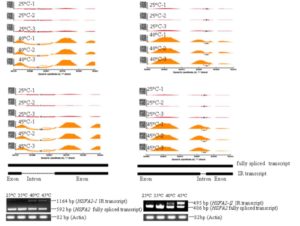 Heat stress is one of the main abiotic stresses plants encounter. Jiang et al. used combined transcriptomic and proteomic data to explore the responses of grape leaves to elevated temperatures (35, 40, 45°C). Using high-throughput sequencing and the iTRAQ (isobaric tags for relative and absolute quantitation) method, they found that non-random posttranscriptional events, particularly alternative splicing, are important heat responses. Notably, heat-shock proteins and transcription factors associated with high temperature were particularly prone to alternative splicing at elevated temperatures. How these differently-spliced transcripts affects plant heat response remains to be explored. Plant Physiol. 10.1104/pp.16.01305
Heat stress is one of the main abiotic stresses plants encounter. Jiang et al. used combined transcriptomic and proteomic data to explore the responses of grape leaves to elevated temperatures (35, 40, 45°C). Using high-throughput sequencing and the iTRAQ (isobaric tags for relative and absolute quantitation) method, they found that non-random posttranscriptional events, particularly alternative splicing, are important heat responses. Notably, heat-shock proteins and transcription factors associated with high temperature were particularly prone to alternative splicing at elevated temperatures. How these differently-spliced transcripts affects plant heat response remains to be explored. Plant Physiol. 10.1104/pp.16.01305


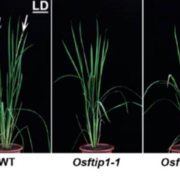
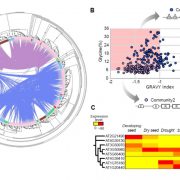

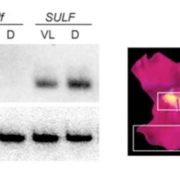
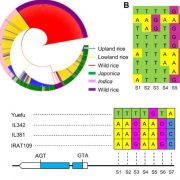

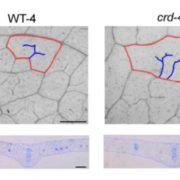



Leave a Reply
Want to join the discussion?Feel free to contribute!